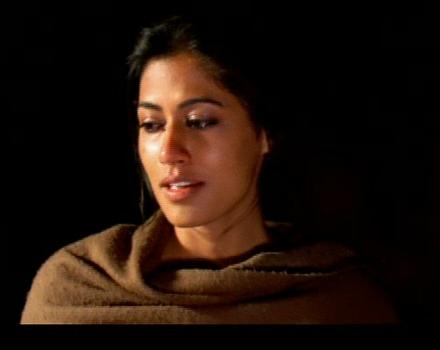Good to see a generous review of "Hazaaron Khwaishein Aisi" by movie critic of the house, Kalankistan.
As always, he keeps a sharp eye on all aspects of movie making when he reviews the movie.
I do agree with Kalanki's observation that the movie has a loose screenplay. Screenplay writer, if it was not the director himself, must be too green. If it was adapted from a pre-written story, the screenplay writer must learn what 'adaptation' means.
I also agree that the scene transitions were not smooth. Too much flip-flop. Flip-flops are good to emphasize the parallelism of two parallel events, which was mostly not the case in the movie.
I like the minimalist and intelligent dialogs in the movie. I would recommend the movie for serious viewers for this reason alone.
Creatively minimalist and intelligent dialogs are something you shouldn't expect to find in the mainstream Indian movies.
In the mainstream Indian movies, they put dialogs as if the movie is for blind audiences. And they use body language to the extent that makes the movie most appropriate for hearing-impaired viewers. And on top of all that, they add background score as if they are making a silent movie. All this makes them terribly silly and vulgar. I hardly can stand mainstream Hindi movies for this reason alone.
For this reason, to watch HKA was a refreshing experience to me.
Kalanki did not have a good opinion about background score of the movie. However, to me, the background score, particularly the scheme of spreading the theme score was one of the best things about the movie. Probably this is a matter of taste.
I also have a slightly different opinion about what Kalanki termed 'selfish characters' and 'love triangle'.
The main three characters are not "idealized" to be selfish or unselfish. They are presented neutrally. They are on their own. That's another best thing about the movie.
And to have a triangle, one should fall in love with two persons at the same time, which I don't see as the case in the story.
Our 'heroine' is in POORLY UNDEFINED love (and I think this is the biggest weakness of the movie !) with the revolutionary 'hero'. The 'side hero' is merely a friend to her which is very well and believably presented. The 'side hero' is PASSIONATELY (but not idealized !) in love with the 'heroine', and, I think, this is the soul of the movie.
The side hero's unidealized (very important !) yet unconditional passion for the 'heroine' is what moved me the most and also what I think moved the story providing a softer stream to otherwise hard political story.
I said the unidealization was important. Forget about idealization, even a slight judgmental note on the side hero's passion for the heroine would have brought the movie to the level of silly mainstream movies.
The side hero's PASSION was rewarded by the heroine's COMPASSION, but that was at the end of the story, that is, at twilight of their lives covered by the story.
I am using the term PASSION instead of LOVE to describe side hero's feeling to the heroine, in order to do justice to the theory that passion is one of the components of love.
In Bollywood, love is presented as an amorphous substance (they do not make distinction between passion, intimacy and commitment which actually are components of LOVE, at least, according to the triangular theory of love). So this kind of fine line between passion and love is not possible to draw in Bollywood movies. I said FINE LINE. In all fairness, Bollywood does make distinctions between passion and love when it wants. But when they do, the line is so THICK (instead of FINE) that it looks vulgar and coarse.
HKA, in my best judgement, is free of these Bollywood dogmas and is, therefore, a finest movie for serious viewers to watch.

